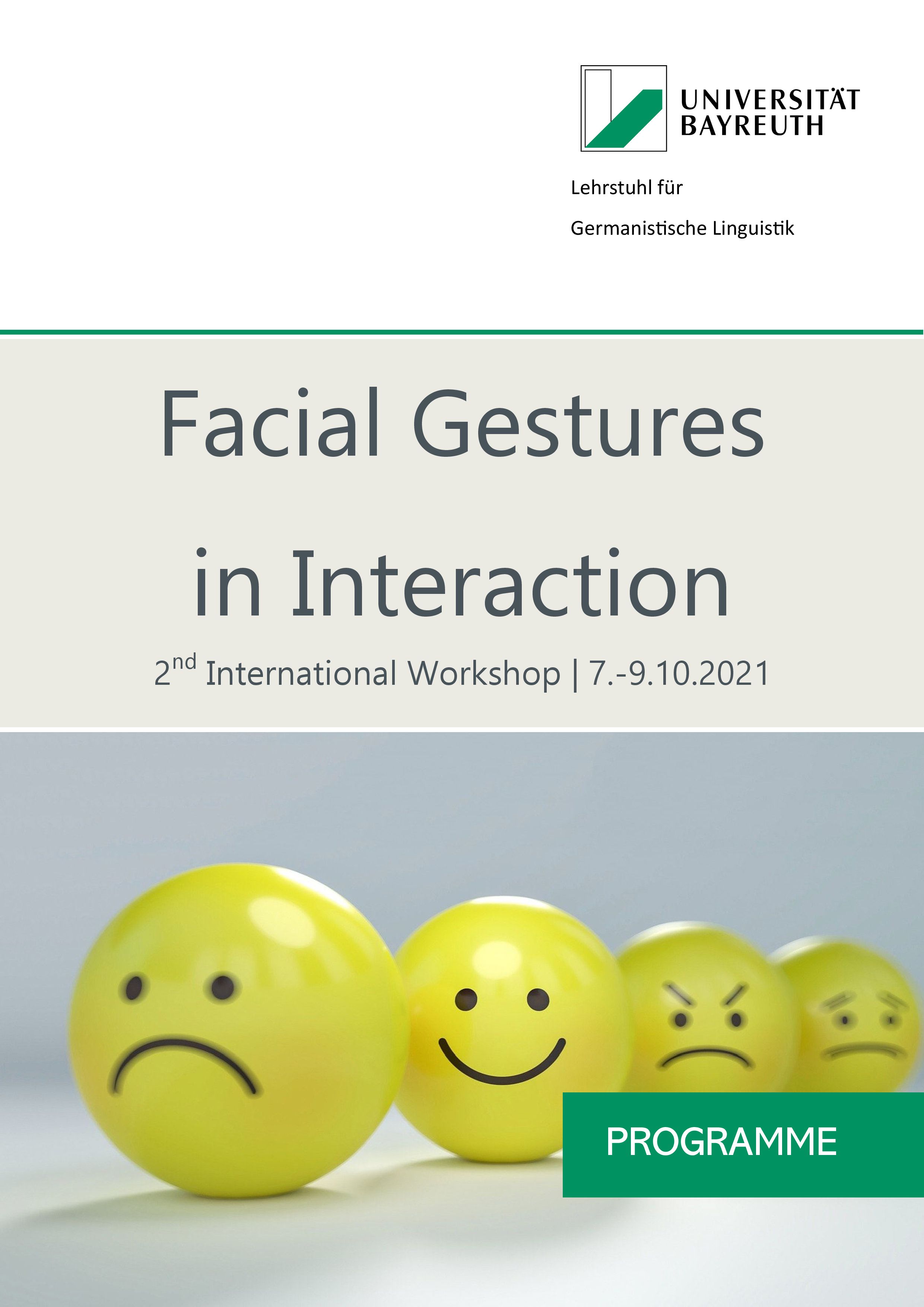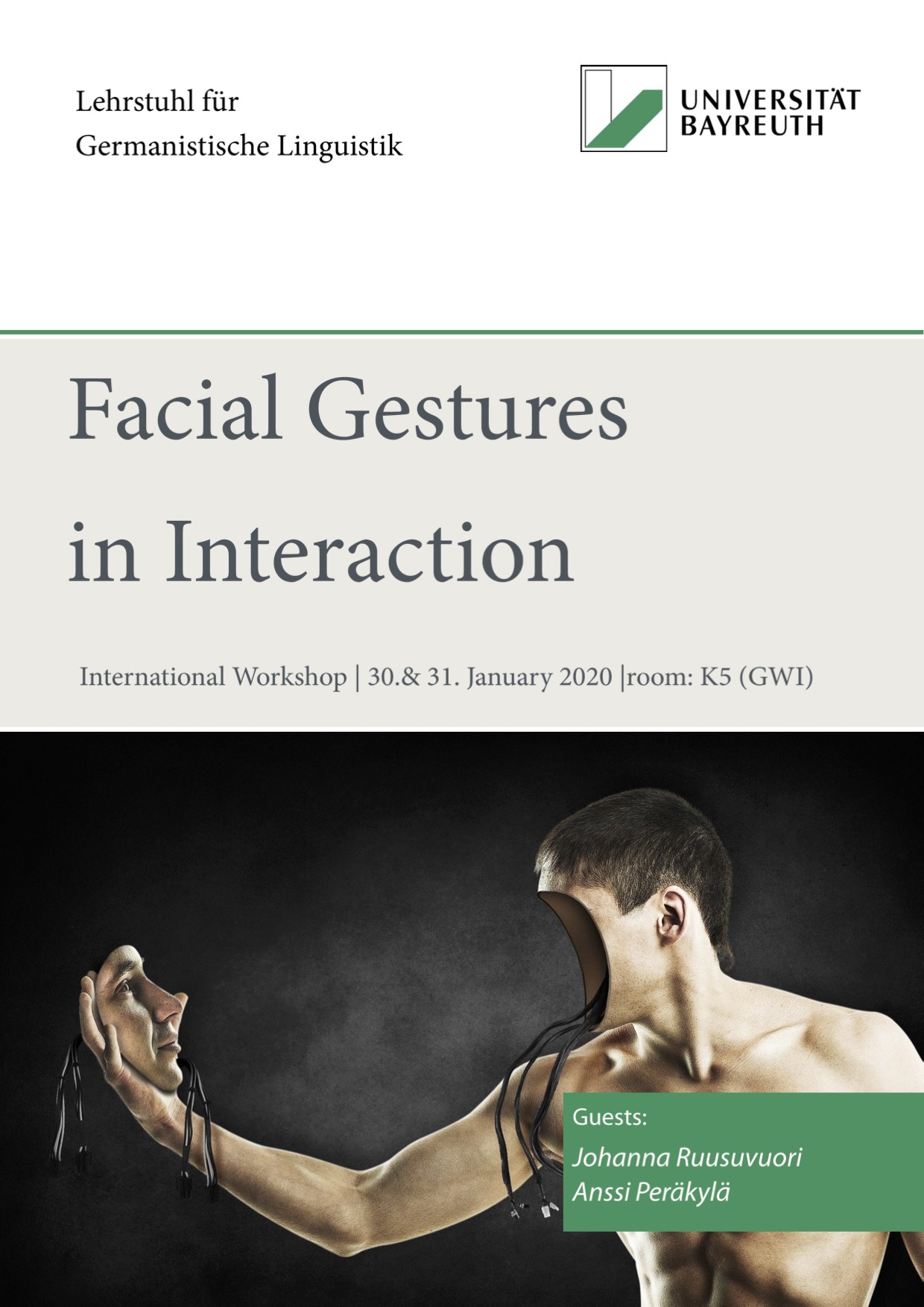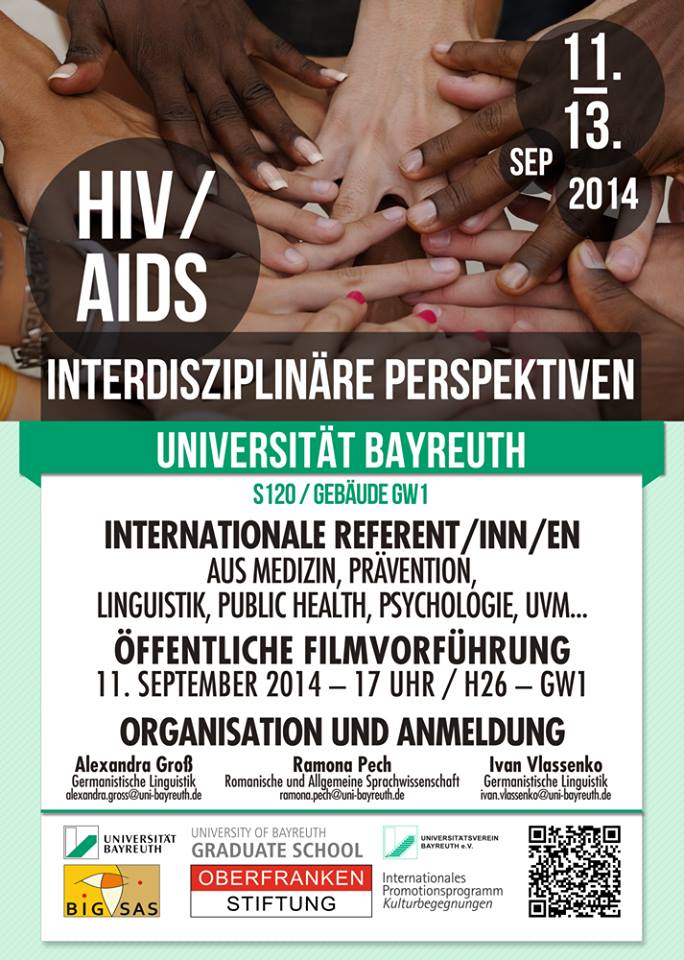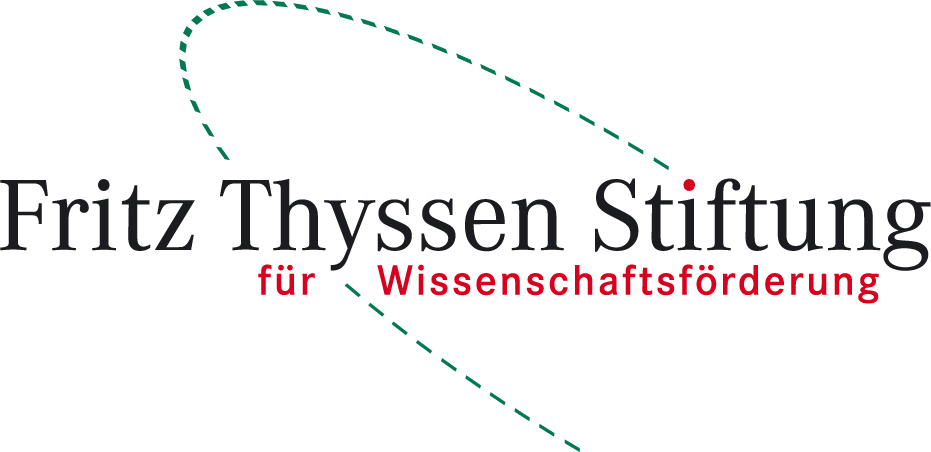Tagungen am Lehrstuhl
- Comparative Perspectices on Doctor-Patient Interactions (CDPI) | 3th-5th October 2023 | University of Bayreuth/virtual spaceEinklappen
-
Description
“Comparative Perspectives on Doctor-Patient Interactions” (CDPI) is a hybrid international conference organised by the research group linkage team on the project “Interactive Dynamics and Contexts of Nigerian and German Doctor-Patient-Encounters” (funded by the Alexander von Humboldt Foundation) to be hosted at the University of Bayreuth, Germany and in the virtual space, from 3rd to 5th of October 2023.
Within Conversation Analysis (CA) and Linguistic Pragmatics, the investigation of doctor-patient interactions has become one of the most dominant branches of research and “has expanded to include interactions in a variety of specialty care settings as well as in allied fields such as pharmacy and dentistry” (Teas Gill & Roberts 2013: 575). While studies in Medical CA (e.g. Heritage 2017, Fatigante, et al. 2020) or Medical Pragmatics (e.g. Odebunmi 2021) usually include – at least implicitly – a comparative perspective in the way that they relate their own results to (previous) findings in corresponding or similar interaction types, only few studies have explicitly compared conversational phenomena across data sets originating from different linguistic/cultural/national contexts until now. Exceptions are e.g. the studies by Bergen, et al. (2018) and Boluwaduro & Groß (2019). The former investigates differences between US American and British interactions with regards to the manifestation of patients’ resistance against treatment recommendation showing that distinct behavioural trends may reflect distinct cultural norms of good-practices. Boluwaduro & Groß (2019) compare the conversational impact of the “How are you (doing)” opening question in Nigerian and German HIV consultations and conversely show that one identical practice might have distinct conversational consequences and thus contextualise distinct norms.
Call for Papers
In order to shift the attention to this promising research area we call for contributions that explicitly take a comparative perspective on doctor-patient interactions within Medical Conversation Analysis, Discourse Analysis, Linguistic Pragmatics, Sociolinguistics, Corpus Linguistics and Health Communication. We look forward to proposals that explore doctor-patient interactions focusing on interactional phenomena from a comparative view in the sense that they compare linguistic choices, conversational practices and actions within the same interaction type (such as HIV consultations, first consultations at the general practitioner etc.) in different linguistic/cultural/national contexts.
Comparative investigations may also be triggered by emphasising the contextualization of social factors like gender, social class and educational background, the role of interpreter-mediation in multilingual interactions compared to monolingual interactions, as well as the relevance of the medical setting (in vs. out patient etc.). We welcome contributions which relate their analyses to theoretical concepts of health science, such as paternalism/humanism, shared decision making, informed choice (e.g. Albus & Koerfer 2015), asymmetry (e.g. Pilnick & Dingwall 2011), subjective illness theories (e.g. Birkner & Vlassenko 2015) or to pragmatic theories, including face theories (e.g., Arundale 2020; Goffman 1967), politeness theories (Locher & Watts 2015; Kadar & Haugh 2013; Brown & Levinson 1978, identity theories (e.g., Simon 2004), common ground theories (e.g. Clark & Brennan 1991; Kecskes & Zhang 2009) etc.Abstracts (max. 350 words, plus references) should clearly indicate the objective(s), methodology and results of the study. Presentations will typically be scheduled in sessions of 30 minutes allocated to each individual presentation. We also plan a poster session conducted in the virtual space. Submissions should be sent to the conference committee via email at CDPI@uni-bayreuth.de, and should include information whether they are meant for an oral presentation or a poster.
Conference committee: Tosin Adeyehun (University of Ibadan/Nigeria), Oluwaseun Amusa (University of Ibadan/Nigeria), Alexandra Groß (University of Bayreuth/Germany), Ahmad Izadi (University of Bayreuth/Germany and Islamic Azad University, Abadan, Iran.)
Important information:
- Conference venue: Hybrid meeting, hosted at the University of Bayreuth and in the virtual space (via zoom)
- Plenary speaker: Ana Cristina Ostermann (Universidade do Vale do Rio dos Sinos, Brazil)
- Conference dates: from 3rd to 5th of October 2023
- Deadline for abstract submission: 31th May 2023, via email at CDPI@uni-bayreuth.de
- Notification of acceptance: 30th June 2023
- Conference language: English
- Registration fee: None (The conference is funded by Alexander von Humboldt Foundation)
- Conference venue: Hybrid meeting, hosted at the University of Bayreuth and in the virtual space (via zoom)
- Facial Gestures in Interaction - 2nd International Workshop | 7.-9.10.2021Einklappen
-

The movements on the human face are a dense cluster of visual resources that – as facial gestures – become highly relevant in (temporal and spatial) co-present and computer-mediated face-to-face-interactions. Yet, the term face-to-face implies the outstanding significance of the various facial movements which interlocutors can use to accomplish a diverse range of actions. Furthermore, facial movements can be silenced only limitedly: In most cases, only parts of the face (primarily the mouth and nose) are masked for religious reasons or reasons of infection protection.
Notwithstanding this prominence of the human face, a systematic analysis of the various facial movements in their contribution for action formation/recognition and the organization of talk-in-interaction remains the last blank spot within the approaches of Conversation Analysis, Interactional Linguistics and Multimodal Interaction Analysis while investigations of hand gestures and gaze have progressed further (see, e.g., Rossano 2013; Stukenbrock 2018; Auer 2018, 2021).
So far, single projects in the tradition of CA, IL and MA have focused on the interactional impact of movements of eyebrows, lips, and cheeks as conversational gestures in their own right (see Kaukomaa et al. 2013, 2014, 2015; Peräkylä & Ruusuvuori 2006, 2012; Ruusuvuori & Peräkylä 2009). Other studies occasionally mention facial gestures as part of the multimodal constitution of action (e.g., as part of the thinking face, Goodwin & Goodwin 1986).
For this workshop, forms and functions of facial gestures will be at the center of interest. Focusing on the “interactive face”, we are including the whole repertoire of positions and movements of eyelids, eyebrows, lips and tongue, cheeks, nose, forehead, and chin.
Taking it a step further from the 1st workshop which took place in Bayreuth in January 2020 (see the workshop report of Alt 2020), this 2nd workshop will take up and expand questions of how facial gestures as co-speech and stand-alone elements contribute to turn construction, how they help in organizing turn-taking and displaying recipiency, and how interlocutors use their faces to come to a mutual understanding.
- Forschungstreffen im Rahmen der AvH Research Group LinkageEinklappen
- International Workshop "Facial Gestures in Interaction", 30.-31.01.2020 in BayreuthEinklappen
-

Facial gestures are essential interactional resources for constructing the multimodal gestalt of actions (e. g. Deppermann, 2018). Formerly being almost exclusively a field of research within emotion psychology focusing on human ways of expressing emotion via facial expressions (e. g. Ekman & Friesen 1969, Ekman 1993), the interactional impact of facial gestures has been discovered for multimodal interaction analysis in seminal papers (e. g. Goodwin & Goodwin 1986, Peräkylä & Ruusuovori 2009, 2012).
Taking the significance of facial resources for co-constructing meaning in interaction as a basis, the aim of this workshop is to bring together scholars and junior scientists in order to investigate the specific relationship between verbal and vocal expressions and all kinds of visual and bodily resources – especially facial gestures and their interplay with prosody, gestures, body postures etc. in different settings and interactional contexts. Furthermore, the workshop asks for technical and methodological needs when analyzing facial gestures in interaction such as set-design and camera position as well as transcription and presentation.
Using different formats of presenting (data session, research report, presentation + discussion) we aim at discussing work-in-progress as well as advanced research projects that focus at the role of facial gestures within a CA/IL/multimodal analysis approach
- Workshop des GAL Forschungsfokus „Geflüchtete“ am Fr. 17.01.2020 in BayreuthEinklappen
-
Thema: „Ergebnisbilanz in der Spracharbeit mit Geflüchteten“.
- Workshop des GAL Forschungsfokus „Geflüchtete“, 25./26.05.2018 in BayreuthEinklappen
-
Thema: „Bildungssprachliche Kompetenzen von Geflüchteten“.
- 2014 HIV /AIDS. Interdisziplinäre Perspektiven (11. bis 13.09.2014)Einklappen
-

Im Rahmen der ‚University of Bayreuth Graduate School‘ findet vom 11. bis 13. September 2014 die internationale Tagung ‚HIV/AIDS. Interdisziplinäre Perspektiven‘ statt, mit dem Ziel, Vertreter unterschiedlicher Fachrichtungen und Berufsfelder in einen konstruktiven Dialog zu bringen und die jeweiligen Sichtweisen auf HIV/AIDS für benachbarte Disziplinen und Praxisfelder fruchtbar zu machen.
Die Tagung bietet sowohl Wissenschaftler/inne/n als auch Vertreter/inne/n aus der Praxis ein Forum zum Austausch und zur Diskussion aktueller Arbeitsschwerpunkte und Forschungsergebnisse. Sie verspricht interessante Einblicke und neue Erkenntnisse aus einem breiten Spektrum an unterschiedlichen Disziplinen und Arbeitsfeldern, die sich auf vielfältige Art und Weise mit HIV/AIDS auseinandersetzen oder in der HIV/AIDS-Arbeit tätig sind: Medizin und Psychologie, Sprach- und Kommunikationswissenschaften, Wirtschafts- und Politikwissenschaften, Literatur- und Medienwissenschaften und nicht zuletzt die Präventions-, Beratungs- und Therapiepraxis.
Ort: Campus der Universität Bayreuth
Organisation:
Alexandra Groß, Germanistische Linguistik
Ivan Vlassenko, Germanistische Linguistik
Ramona Pech, Romanische und Allgemeine Sprachwissenschaft - „Wissen in der institutionellen Kommunikation“, 52. Treffen des AAG (24. und 25.05.2013)Einklappen
-

Universität Bayreuth, Freitag, 24. und Samstag, 25. Mai 2013
Raum: S120, GWI
gefördert von der Fritz Thyssen Stiftung
- Poster
- Homepage des AAG auf dem Linguistik-Server Essen (LinSE)
Ansprechpartnerinnen:
Alexandra Groß
Inga HarrenWissen in der institutionellen Kommunikation
In der institutionellen Kommunikation hat Wissen eine besondere Relevanz. Dies gilt nicht nur für Institutionen, deren explizite Aufgabe im Wissenstransfer besteht, wie Schule, Universität, Ausbildung oder auch Beratungen, vielmehr spielen Asymmetrien und Differenzen bei Wissensbeständen von Gesprächspartner/innen in (fast?) allen Institutionen eine große Rolle. In Verkaufsgesprächen wird zu einem gewissen Anteil fachbezogenes Wissen vermittelt; in Reklamationsgesprächen handeln die Institutionenvertreter gemäß ihres Wissens über die firmeninterne Abläufe; Manager, Juristen und Ärzte agieren auf der Basis ihres Fachwissens, das im Gespräch mit dem Klienten für unterschiedliche Zwecke (z. B. Diagnosestellung im Arzt-Patient-Gespräch) relevant gesetzt wird. Aber nicht nur das "Expertenwissen", sondern auch das „Laienwissen“ steht im Fokus linguistischer Forschung: Die Bearbeitung und Konstruktion gemeinsamen Wissens fordert zum einen den interaktiven Abgleich unterschiedlicher Wissensbestände, zum anderen bringen Laien aber auch selbst (semi)professionelles Wissen in die Interaktion ein. Nicht zuletzt müssen in vielen Arbeitszusammenhängen auf der Basis von Wissen Entscheidungen in Teams getroffen werden, teilweise von Beteiligten mit unterschiedlichen Herkunftssprachen und disziplinären Zugehörigkeiten. Wir freuen uns über Beiträge, die sich mit Wissen, Wissensasymmetrien, Wissenskommunikation in Zusammenhang mit sozialen Rollen und Vermittlungsfragen in der institutionellen/ beruflichen Kommunikation beschäftigen. Wir bitten darum, dass die Beiträge anwendungsnah sind.
Programm
Donnerstag, 23. Mai 2013
Warming up ab 19.00 Uhr im Sinnopoli, Badstraße 13, bei schönem Wetter im Biergarten
Freitag, 24. Mai 2013
- 09:00 Uhr: Eintreffen und Begrüßung
- 09:30 Uhr: Vorstellung und Berichte der Teilnehmenden
- 10:45 Uhr: Kaffeepause
- 11:00 Uhr: Vortrag, Alexandra Groß / Inga Harren (Universität Bayreuth): Einführung
- 11:45 Uhr: Vortrag, Miriam Morek (Technische Universität Dortmund): ‘Du schlauer Junge!‘ - Wissen in Interaktionen mit und unter Kindern
- 12:30 Uhr: Mittagspause
- 14:00 Uhr: Vortrag, Michael Klemm (Universität Koblenz-Landau): Die multimodale Konstruktion von Expertenwissen. Betrachtungen am Beispiel des Klimawandel-Diskurses im Fernsehen
- 14:45 Uhr: Datensitzung, Ramona Pech (Universität Bayreuth): Wenn der Wissenstransfer zu scheitern droht: Praktiken der Informationsvermittlung in der HIV/Aids-Prävention
- 16:00 Uhr: Kaffeepause
- 16:15 Uhr. Vortrag, Maria Egbert (Süddänische Universität, Sønderborg): 'Subjektives' und 'objektives' Wissen in der audiologischen Diagnose
- 17:00 Uhr: Vortrag, Ulla Kleinberger/ Sandra Hanselmann/ Igor Matic (Zürcher Hochschule für Angewandte Wissenschaften): "Sie nehmen das alleine, oder?“ Wissensverhandlungen zwischen PflegerInnen und fremdsprachigen KlientInnen in der häuslichen Pflege
- 17:45 Uhr: Kaffeepause
- 18:00 Uhr: Datensitzung, Astrid Porila (Universität Chemnitz): Wissen und Verstehen in Migrationsbehörden
- 19:15 Uhr: Ende
- ab 20 Uhr: Abendessen im Oskar, Maximilianstraße 33
Samstag, 25. Mai 2013
- 09:00 Uhr: Vortrag, Thomas Spranz-Fogasy (IDS Mannheim): Kognitiva in prädiagnostischen ärztlichen Mitteilungen
- 09:45 Uhr: Vortrag, Jenny Winterscheid (IDS Mannheim): ‘Wenn Eltern die Beschwerdenschilderung übernehmen…‘ Die Beanspruchung der Wissenshoheit in pädiatrischen Gesprächen
- 10:30 Uhr: Kaffeepause
- 10:45 Uhr: Christina Burbaum (Universität Freiburg)/ Karin Birkner (Universität Bayreuth): Wissenstransfer als Suchbewegung im TherapiegesprächVortrag, Alexandra Groß / Inga Harren (Universität Bayreuth): Einführung
- 11:30 Uhr: Datensitzung, Caroline Weinzinger (Universität Zürich): Wissenskonstruktion in Online-Coaching-Prozessen
- 12:45 Uhr: Kaffee & Brötchen
- 13:00 Uhr: Ende der Tagung
- GAL – 1. Sektionentagung der GAL (22. und 23.09.2011)Einklappen
-
Weitere Informationen zur GAL - 1. Sektionentagung der GAL (22. und 23.09.2011)
- Einklappen
